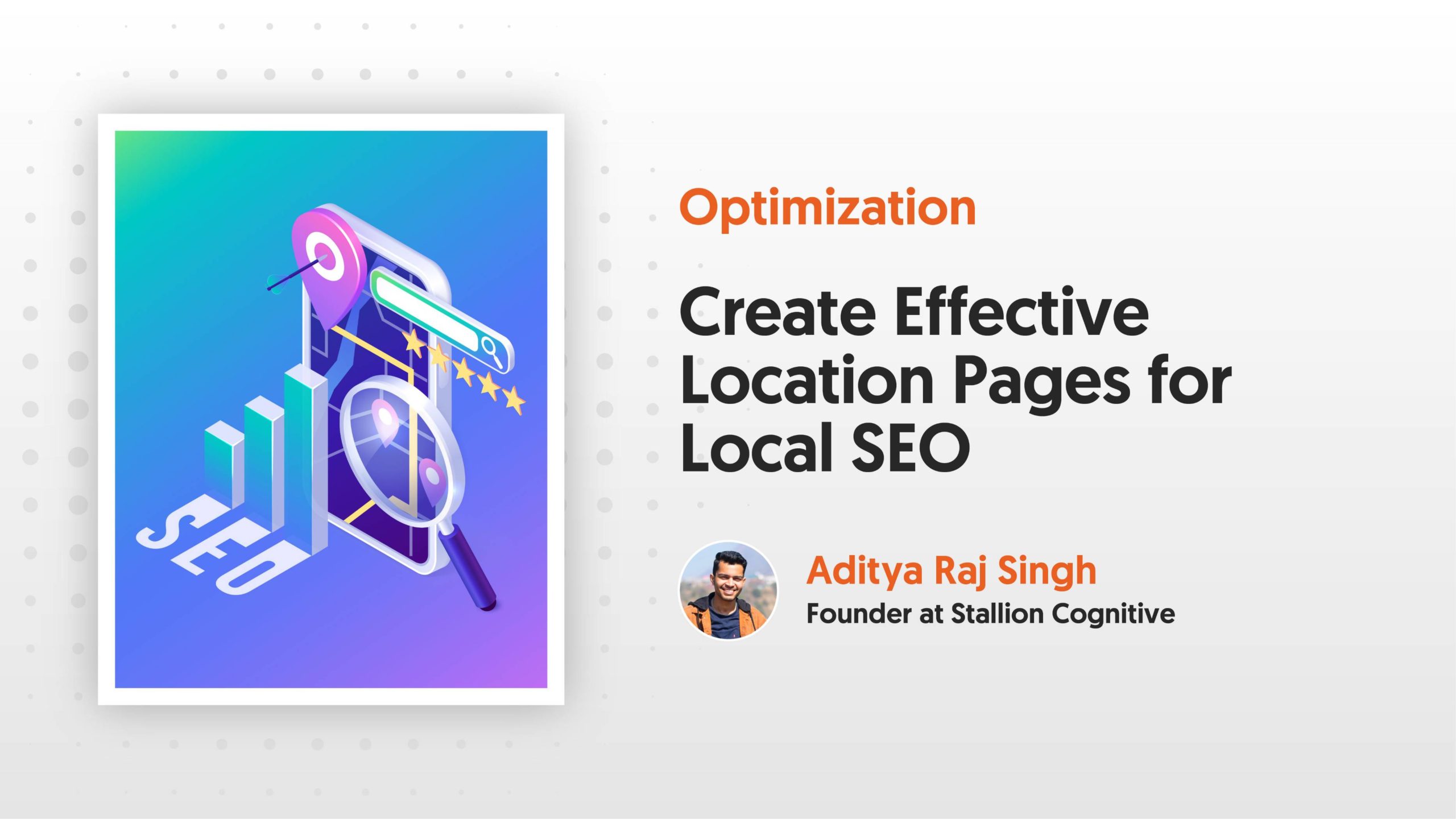Whether you're running a small business or a large enterprise, local landing pages are vital to boost your local SEO and drive traffic fast. These pages help your potential customers find your business through local organic search.
You must consider them if you want your local business to rank for location searches for areas other than where you're physically located.
Besides, search engine optimization for local businesses is also crucial. Now that mobile devices account for more than half of all website visits, it only makes sense that these consumers would prioritize geo-targeted content.
Google can provide those results only if the search engine has the necessary data. If you don't set up your website to be used as a local page, your site won't show up for visitors searching for local businesses.
If you have yet to create a location page, don't worry! Use this blog post as a checklist to ensure your website's "local landing" page has all the essential elements.
Let's start this article by explaining what location pages are.
What Is a Local Landing Page?
A local landing page, also called a location specific page, is a way to target long-tail keywords related to a specific location.
These are best suited for service-oriented companies or brick-and-mortar chains with several locations. These businesses share a crucial need: letting customers know they have more than one service area location.
If you're having trouble with local search engine optimization outside your physical location, these pages can help.
Depending on what your landing page for your business needs, you could include the following:
- Customized Menus
- Name, Address, Phone Number
- Team Member Bios
- Office Hours
- Description Of Business Location
- Maps
- Photos
- Useful Call-To-Action
- Schema
- Title And Meta Description
- Internal Links
- Monitor And Manage Your Reviews
- Lists that are of local interest
- Directions To Business
Local Landing Pages And Local SEO
Note that local search engine optimization does not include location-specific sites. Local search engine optimization, however, might benefit from the use of local landing pages.
Optimizing your website for a particular geographic area, or "local SEO," helps online users find your physical storefront. Using landmarks in the surrounding area might help you remember the information more easily.
For example, if you own several restaurants in Miami-Dade County, Florida, you should really try to attract customers from Miami-Dade County and the areas around it. Why? Because these customers will likely come to your restaurant.
7 Strategies to Create High-Performing Local Landing Pages
Create Location-Specific Content
You need to provide relevant content to optimize your local page appropriately. This included keywords that are specific to your company and locality.
Let's imagine you have a flower shop in Miami, and you provide delivery services to the surrounding areas. If you want visitors searching for the whole Miami region to find your business, you can optimize your site for the phrase "Flower Shop Florida." Those with a physical shop should describe what they sell, point out landmarks or other local companies that will help customers discover them, and explain what makes their establishment special.
If you run a brick-and-mortar chain with many locations, be sure to provide each shop's unique selling proposition (USP) on its respective location page, in addition to the items and services offered at those stores and any notable local landmarks.
List your services and unique selling proposition for SAB with an office location and SAB without an office location.
Add Localized Contact Information
When creating a page for a specific place, you must provide clear and accessible contact information. This is of utmost significance if your organization operates out of more than one store, clinic, or other kinds of physical site.
The following details must be stated explicitly for each location page:
- Name
- Address
- Phone Number
To attract customers to your storefront, you must first claim it on Google My Business. Then, you must include the Google My Business address on the page. Moreover, you can provide Google with further information about your location by including a local schema in the page's markup.
Use Location-Specific Keywords
Next, you need to ensure that your content, meta tags (title, meta description, h1), and URL path have location-specific keywords. In this way, search engines will know that the content on your location page is relevant only in a certain geographic area. As an example, think about the following:
You're a baker with stores in both Miami and Coral Gables, where you specialize in wedding cakes. You have to dedicate one page to each geographic area and use strategic placement of keywords relevant to that area.
Include Business Hours
A user's worst nightmare is finding a company online, driving all the way there, and finding out that they're closed because their hours were wrongly published on their website or Google My Business page.
Add your store's hours on your location page to save your own customers the hassle. These times must be a perfect match for your GMB profile.
Feature Identical NAP Details
To succeed, your consumers must be able to identify, find, and communicate with you.
NAP data refers to important business information:
- Name of Company (N)
- Address (A)
- Location's phone number (N)
These kinds of on-page signals are crucial if you want your website to show up in local search results. Include a Google map showing your business's location on your landing page to improve your site's search engine rankings.
Include a Clear Call to Action
Most of your landing page's visitors will scan it in search of a certain piece of information. Make sure your phone number or other contact information is easy to find and prominently displayed with a clear call to action.
Your call to action can be something like, "Book an Appointment Today" or "Call Us For a Quote."
Feature Customer Reviews
Since Google values new content, customer reviews on Google play a significant role in positioning the Local Pack and other local search results. In addition, good feedback can increase your brand's credibility and reliability in the eyes of prospective buyers.
Create a reputation management plan to attract more positive customer feedback if you either don't have many reviews or have trouble recovering from a negative review. It is recommended to use a review widget to add Google reviews to your location page.
Let us know what you think about it. Does it make it easier to make your first place page? Contact us today and we're happy to help you.


